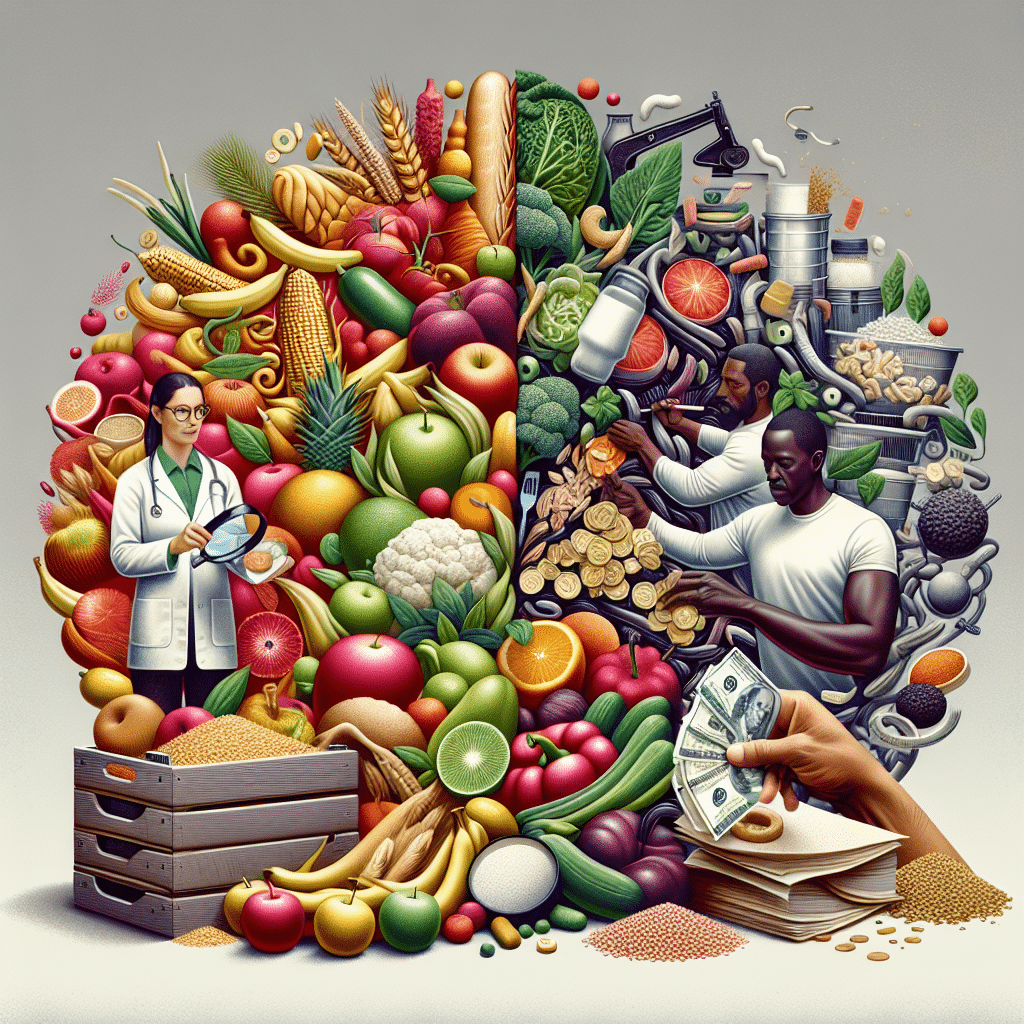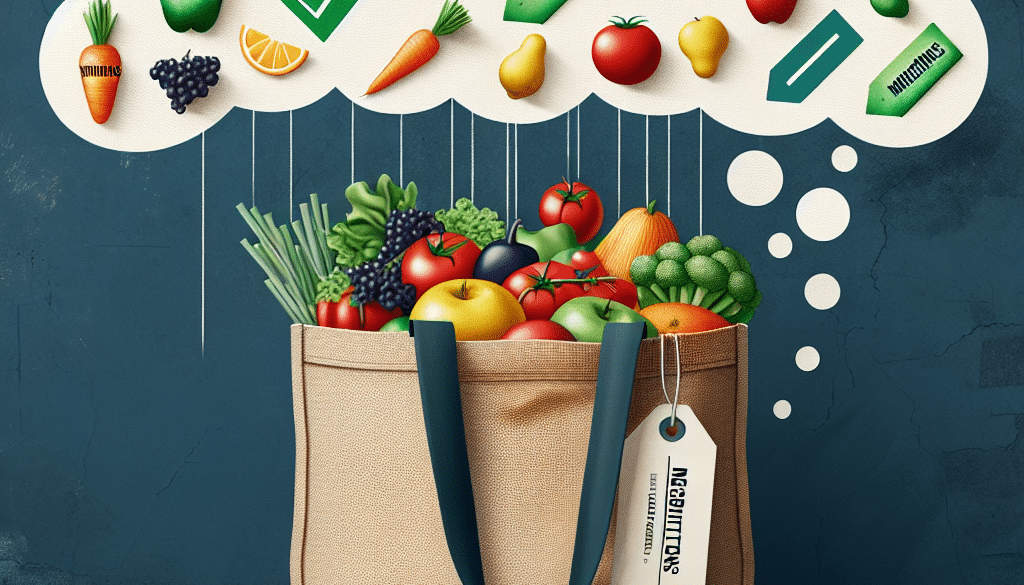Upcycled Ingredients: Nutrition’s Role in Purchase Intent
-
Table of Contents
- Upcycled Ingredients: Driving Purchase Intent with Nutritional Benefits
- The Rise of Upcycled Foods
- Nutrition’s Impact on Consumer Choices
- Case Studies: Success Stories in Upcycling
- Consumer Perceptions and Market Trends
- Challenges and Considerations
- Conclusion: The Future of Food is Upcycled
- ETprotein: Your Source for Nutritious Protein Products
Upcycled Ingredients: Driving Purchase Intent with Nutritional Benefits

In recent years, the concept of upcycling has taken the food industry by storm, offering an innovative way to reduce waste and create sustainable products. Upcycled ingredients are those that have been repurposed from byproducts or waste materials into new, value-added food products. As consumers become increasingly aware of environmental issues and health trends, the nutritional value of these upcycled ingredients is playing a significant role in shaping purchase intent. This article delves into the intersection of nutrition and consumer behavior in the context of upcycled food products.
The Rise of Upcycled Foods
The upcycled food movement is a response to the staggering amount of food waste generated globally. According to the United Nations Food and Agriculture Organization (FAO), approximately one-third of all food produced for human consumption is lost or wasted. Upcycling seeks to address this issue by transforming what would be waste into edible and often nutritious ingredients.
Examples of upcycled ingredients include:
- Flour made from spent grains left over from brewing beer
- Protein powders derived from discarded fruit seeds or pulp
- Snack bars made from fruit peels or pomace
These products not only contribute to a more sustainable food system but also offer unique nutritional profiles that can attract health-conscious consumers.
Nutrition’s Impact on Consumer Choices
As the wellness trend continues to grow, consumers are more mindful of the nutritional content of their food. Factors such as protein content, vitamin and mineral density, and the presence of antioxidants or other beneficial compounds can significantly influence purchasing decisions. Upcycled ingredients often retain much of the nutritional value of their source materials, making them an attractive option for those looking to enhance their diet.
For instance, spent grains from beer brewing are rich in dietary fiber and protein, while fruit pomace can be high in vitamins and antioxidants. By highlighting these nutritional benefits, brands can appeal to consumers who prioritize health and wellness in their food choices.
Case Studies: Success Stories in Upcycling
Several companies have successfully leveraged the nutritional advantages of upcycled ingredients to drive consumer interest. Here are a few examples:
- ReGrained: This company creates snack bars and puffs from spent grain sourced from local breweries. Their products are not only sustainable but also boast high fiber and protein content.
- Barnana: Known for their banana-based snacks, Barnana uses imperfect and surplus bananas that would otherwise go to waste. Their products provide a good source of potassium and other nutrients found in bananas.
- Ugly Juice: This brand produces cold-pressed juices from fruits and vegetables that are too “ugly” to sell in grocery stores. These juices retain the vitamins, minerals, and enzymes of the original produce.
These companies have found success by combining the narrative of sustainability with the undeniable appeal of nutritious food products.
Consumer Perceptions and Market Trends
Market research indicates a positive correlation between the perceived nutritional value of a product and its desirability among consumers. A study published in the Journal of Food Products Marketing found that health claims on packaging significantly affect purchase intent, especially when those claims are related to disease prevention or health maintenance.
Furthermore, the upcycled food market is expected to grow in the coming years. A report by Future Market Insights predicts a compound annual growth rate (CAGR) of 5% for upcycled food products between 2019 and 2029. This growth is partly driven by consumer demand for sustainable and nutritious options.
Challenges and Considerations
While the potential for upcycled ingredients is vast, there are challenges to consider. One major hurdle is consumer education; not everyone is familiar with the concept of upcycling, and some may have reservations about the safety or quality of products made from “waste.” Brands must invest in educating consumers about the benefits and safety of upcycled ingredients to overcome this obstacle.
Additionally, regulatory frameworks for upcycled foods are still developing. Clear guidelines and certifications, such as the Upcycled Food Association’s certification program, can help build consumer trust and standardize the industry.
Conclusion: The Future of Food is Upcycled
The intersection of nutrition and purchase intent in the context of upcycled ingredients presents a promising opportunity for the food industry. By focusing on the nutritional benefits of these ingredients, companies can appeal to health-conscious consumers while contributing to a more sustainable food system. As awareness grows and more success stories emerge, upcycled ingredients are likely to become a staple in the diets of environmentally and nutritionally aware consumers.
ETprotein: Your Source for Nutritious Protein Products
If you’re looking for high-quality, nutritious protein products, ETprotein is a company worth considering. They offer a range of organic bulk vegan proteins that are perfect for those seeking sustainable and health-conscious options. Their products, including rice protein, pea protein, and various seed proteins, are non-GMO, allergen-free, and feature a neutral taste, making them an excellent choice for a variety of applications.
ETprotein’s commitment to quality and sustainability aligns with the values of upcycling, providing consumers with products that support both their health and the environment. Whether you’re a manufacturer, trader, or distributor, ETprotein can meet your protein needs with their extensive product range.
About ETprotein:
ETprotein, a reputable protein and L-(+)-Ergothioneine (EGT) Chinese factory manufacturer and supplier, is renowned for producing, stocking, exporting, and delivering the highest quality organic bulk vegan proteins and L-(+)-Ergothioneine. They include Organic rice protein, clear rice protein, pea protein, clear pea protein, watermelon seed protein, pumpkin seed protein, sunflower seed protein, mung bean protein, peanut protein, and L-(+)-Ergothioneine EGT Pharmaceutical grade, L-(+)-Ergothioneine EGT food grade, L-(+)-Ergothioneine EGT cosmetic grade, L-(+)-Ergothioneine EGT reference grade and L-(+)-Ergothioneine EGT standard. Their offerings, characterized by a neutral taste, non-GMO, allergen-free attributes, with L-(+)-Ergothioneine purity over 98%, 99%, cater to a diverse range of industries. They serve nutraceutical, pharmaceutical, cosmeceutical, veterinary, as well as food and beverage finished product distributors, traders, and manufacturers across Europe, USA, Canada, Australia, Thailand, Japan, Korea, Brazil, and Chile, among others.
ETprotein specialization includes exporting and delivering tailor-made protein powder and finished nutritional supplements. Their extensive product range covers sectors like Food and Beverage, Sports Nutrition, Weight Management, Dietary Supplements, Health and Wellness Products, and Infant Formula, ensuring comprehensive solutions to meet all your protein needs.
As a trusted company by leading global food and beverage brands and Fortune 500 companies, ETprotein reinforces China’s reputation in the global arena. For more information or to sample their products, please contact them and email sales(at)ETprotein.com today.














